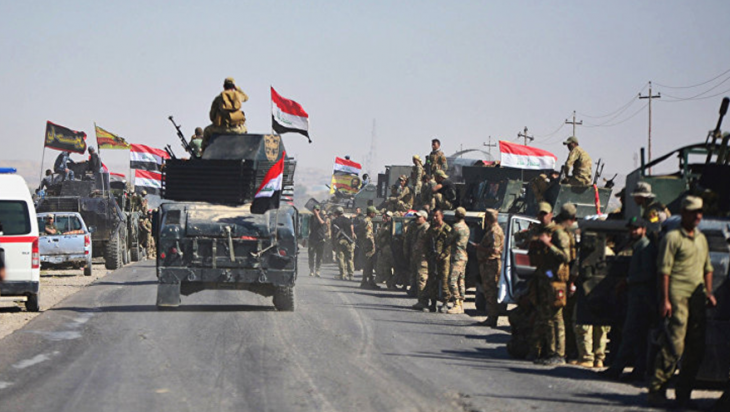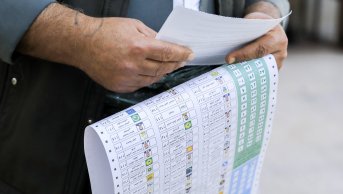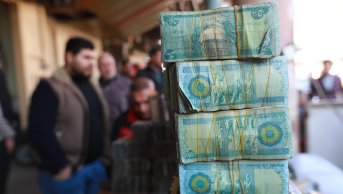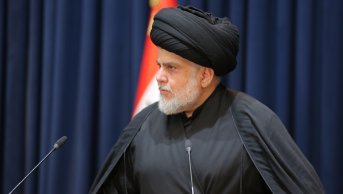Iraqi Central Government's Intervention in Kirkuk and Its Effects

Despite all internal and international pressure against it, the Kurdish Regional Government (KRG) has held a referendum on independence in regions attached to the KRG and those in dispute on September 25th, 2017. The referendum, held at a time of high tensions due to the flag crisis and the dismissal of governor Najmiddin Karim has left moot all calls for dialogue by the Baghdad administration.
Dismissal of Najmiddin Karim
Patriotic Union of Kurdistan (PUK) politburo member and former governor of Kirkuk Najmiddin Karim was relieved from his duties after a vote in parliament in Baghdad. 173 MPs who attended voted to remove Karim from office. However, Najmiddin Karim continued acting as governor illegitimately. Despite stating that he does not recognize the decision, Karim has appealed to the Court of Administrative Law of Iraq. On October 17th 2017, Kirkuk’s Deputy Governor Rakan Saeed Jabouri started acting as governor. The court announced its decision a day after the new appointment and ratified the decision of parliament. According to a statement issued by Baghdad, there was no connection between Karim’s removal from office and the decision to hold the referendum. The parliament voted on the basis of files on corruption.
The KRG’s Referendum Card
Despite rising tensions and pressure, the referendum was held on September 25, 2017 in KRG regions and disputed areas. That the results were not announced broken down by province and district shows that an already dubious vote was not carried out to international standards. With this move, the KRG has tried to render invisible those areas where participation and the yes vote were low. Baghdad has reacted to the illegitimate referendum being held in areas outside of the KRG’s jurisdiction. It also announced that there would be a military intervention should there be violent disturbances in dispute areas such as Kirkuk. Despite this announcement, there were attacks on Turkmen and Arab political parties and NGOs in Kirkuk following the referendum. On October 15th, 2017, the Hashdi Shaabi units attached to Iraqi security forces and the federal police began to move from the South of Kirkuk towards the city centre.
That all KRG Peshmerga other than those attached to Kosret Rasul withdrew from Kirkuk shows that the KRG had reached an agreement with Baghdad. With the withdrawal of these Peshmerga, the line of defence that KRG President Masood Barzani wanted to establish in Kirkuk collapsed.
Central Administration Control Over Kirkuk
Following the military intervention by the central administration, some Kurds were observed to flee Kirkuk towards Sulaymaniyah in particular and Irbil. The propaganda carried out by the Kurdistan Democratic Party (KDP) played an important role in having people flee. Kurds in Kirkuk were fed propaganda that Iraqi security forces were coming to avenge themselves on them. However, once the control of the city passed into the hands of the central government in short order, there were no attacks on Kurds living in Kirkuk, or on the Turkmen or Arabs. The Baghdad administration has taken advantage of the fault lines appearing in KRG politics and therefore within the Peshmerga to re-establish its control in areas over which it has constitutional jurisdiction. After Kirkuk, the military advanced continued towards the Plain of Nineveh and Sinjar.
The KDP- PUK Crisis
Following the intervention of the central administration, the KRG is expected to withdraw to its 2014 boundaries, while Baghdad is expected to be restored to its 2003 boundaries as a result of its determined attitude. This defeat of the KRG was caused by the decision to hold the referendum and the deep divide between the KDP and the PUK. In August 1996, Saddam Hussein’s army had entered Irbil upon the invitation of Barzani and expelled the PUK out of the city. Following the death of Jalal Talabani, the Talabanis within the PUK made a deal with Baghdad and made Barzani pay for what happened in 1996. The traces of this deal may be found in Hero Ibrahim Ahmed’s (Talabani) statement after the referendum, that it was ‘a very big mistake.’
KRG Presidential and Parliamentary Elections
Masood Barzani was elected president for the first time in 2005 by the KRG parliament. Having completed his first term, he was elected president a second time in 2009 by popular vote. When he completed his second term in 2013, his term in office was extended for two years by parliament. In 2015, it was claimed that the budget was not sufficient to hold an election and elections were postponed indefinitely. With the decision to hold a referendum on September 25th 2017, the credibility of the claim that the budget would not permit an election was dispelled. Therefore it was decided to hold presidential and parliamentary elections on November 1st 2017. Mohammed Tofiq Rahim of Gorran put in a bid for candidacy in the presidential election. While his candidacy was initially accepted, it was later refused on the grounds that he had not handed in the necessary documentation. Therefore Rahim cannot run as candidate for president. The period for putting up candidates for the parliamentary elections ended on October 9th. According to the KRG Electoral Commission, a minimum period of 30 days should be allowed for campaigning before elections. Therefore it was announced that elections would go ahead on November 10th. While it was unclear whether the elections would be held at all, they were postponed once more with this new decision. It is unclear whether the elections will be held on the date announced. Internal political balance in the KRG and the course of relations with Baghdad will influence the elections in the KRG. Gorran blames the bad governance of Barzani for the losses incurred after the referendum. It wants Barzani and the government to resign and for elections to be held under a temporary government.
The KRG Effect on Ankara-Baghdad Relations
After the referendum, international flights to the KRG were cancelled by Baghdad’s demand. Baghdad has also demanded the transfer of control of customs in line with the Iraqi Constitution. However, given the fighting the KDP and the PUK have engaged between each other for the control and income of the Ibrahim Halil Border Crossing (Habur Border Crossing), it may be said that they will not voluntarily turn over its control to Baghdad. Under the circumstances, and with Iraqi security forces advancing towards Fishkabour, there is the possibility that there might be established a new border province that will be attached to the province of Nineveh, rather than Dohuk, and therefore will be under the control of the central government. After losing control of the oil fields in Kirkuk, the KRG’s Daily export of oil has declined by 400,000 barrels. Should it also lose income from the Habur Border Crossing, which is worth approximately USD 400 million a year, the KRG administration will find itself hard up. In order to soften the reaction from Baghdad, the KRG government as proposed to suspend the results of the referendum, which it had once described as a ‘one-way path’. The Baghdad government is concerned that the KRG might make use of the referendum results trump it holds in the future. Therefore it may be said that Baghdad would prefer the resolve its disputes with the KRG.
The KRG’s referendum on September 25th 2017 has caused tensions to continue to run high in Iraq. Barzani ensured the referendum to go ahead with a mistaken idea of developments that would follow it. With Baghdad’s intervention in Kirkuk, former governor Najmiddin Karim has been removed from the post which he had been occupying illegitimately. The withdrawal of the Peshmerga from Kirkuk shows that Kurds have serious friction and divisions among themselves. Control of Kirkuk changed hands very quickly, without any significant resistance. After the central government ensured control over Kirkuk, attacks targeting the Turkmen and Arabs in the city have ceased almost completely. The advance of the central government was not limited to Kirkuk. Its forces has continued have continued on to the Plain of Nineveh and from there to Fishkabour. The planned presidential and parliamentary elections in the KRG have been affected by these events and they have been postponed once more. The KRG, instead of Baghdad, had been collecting customs duties from trucks crossing into Iraq using the Habur Border Crossing The KRG’s offer to suspend the referendum results is not expected to satisfy Baghdad. The relations between Baghdad and Erbil are expected to stay tense.








